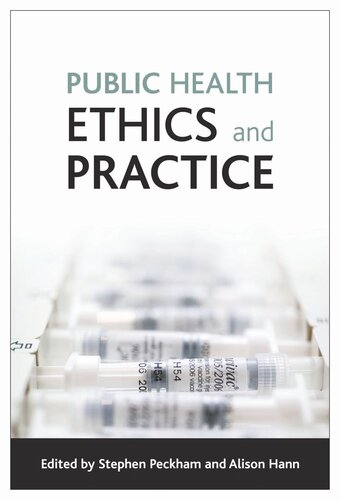

Most ebook files are in PDF format, so you can easily read them using various software such as Foxit Reader or directly on the Google Chrome browser.
Some ebook files are released by publishers in other formats such as .awz, .mobi, .epub, .fb2, etc. You may need to install specific software to read these formats on mobile/PC, such as Calibre.
Please read the tutorial at this link: https://ebookbell.com/faq
We offer FREE conversion to the popular formats you request; however, this may take some time. Therefore, right after payment, please email us, and we will try to provide the service as quickly as possible.
For some exceptional file formats or broken links (if any), please refrain from opening any disputes. Instead, email us first, and we will try to assist within a maximum of 6 hours.
EbookBell Team

5.0
100 reviewsEthical dilemmas are not new in the area of health care and policy making, but in recent years, their frequency and diversity have grown considerably. All health professionals now have to consider the ethical implications of an increasing array of treatments, interventions and health promotion activities on an almost daily basis. This goes hand in hand with increasing medical knowledge, and the growth of new and innovative medical technologies and pharmaceuticals. In addition, the same technology and knowledge is increasing professional and public awareness of new potential public health threats (e.g. pandemic influenza). At the level of public policy, concerns over the rising costs of health care have led to a more explicit focus on 'health promotion', and the surveillance of both 'patients' and the so-called 'worried well'. Health professionals and policy makers also have to consider the implications of managing these risks, for example restricting individual liberty through enforced quarantine (in the wake of SARS and more recently swine flu) and the more general distribution of harms and benefits. Balancing the rights and responsibilities of individuals and wider populations is becoming more complex and problematic. This book will play a key role in opening out a discussion of public health ethics. It examines the principles and values that support an ethical approach to public health practice and provides examples of some of the complex areas which those practising, analysing and planning the health of populations have to navigate. It will therefore be essential reading for current practitioners, those involved in public health research and a valuable aid for anyone interested in examining the tensions within and the development of public health.